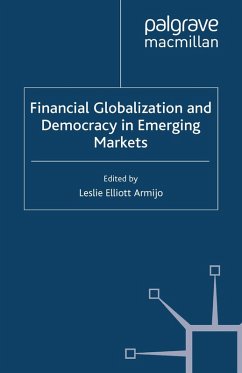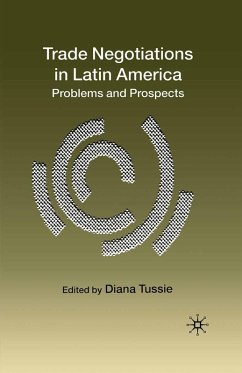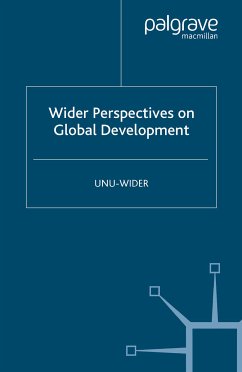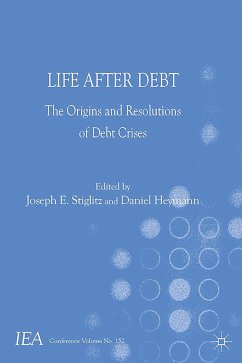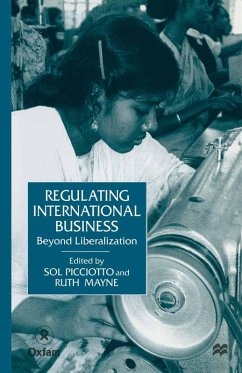
Regulating International Business (eBook, PDF)
Beyond Liberalization
Redaktion: Picciotto, Sol; Mayne, Ruth
Versandkostenfrei!
Sofort per Download lieferbar
112,95 €
inkl. MwSt.
Weitere Ausgaben:

PAYBACK Punkte
56 °P sammeln!
This timely book points the way towards a new positive regulatory framework for international investment following the failure of the Multilateral Agreement on Investment (MAI). It examines the flaws in free-market strategies underpinning the recent phase of globalization, in particular drawing out the lessons from the MAI, which was suspended in October 1998. The authors explore an alternative based on a positive regulatory framework for international business aimed at maximizing the positive contribution to development of foreign investment and minimizing its negative social and environmenta...
This timely book points the way towards a new positive regulatory framework for international investment following the failure of the Multilateral Agreement on Investment (MAI). It examines the flaws in free-market strategies underpinning the recent phase of globalization, in particular drawing out the lessons from the MAI, which was suspended in October 1998. The authors explore an alternative based on a positive regulatory framework for international business aimed at maximizing the positive contribution to development of foreign investment and minimizing its negative social and environmental impacts. The contributors include academics, researchers for non-governmental organizations, and business and trade-union representatives, writing from a combination of economic, legal and political perspectives. The book combines academic analysis with grass-roots and practical experience, and suggests concrete policy proposals.
Dieser Download kann aus rechtlichen Gründen nur mit Rechnungsadresse in A, B, BG, CY, CZ, D, DK, EW, E, FIN, F, GR, HR, H, IRL, I, LT, L, LR, M, NL, PL, P, R, S, SLO, SK ausgeliefert werden.





